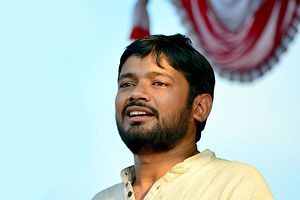Earlier last month, well-known senior advocate Prashant Bhushan’s NGO, Common Cause, along with anti-nuclear activist SP Udayakumar filed a petition with the Supreme Court of India against the “misuse of sedition laws.” The Public Interest Litigation (PIL) filed sought direction from the SC to police authorities to strictly review cases of sedition before filing a First Information Report (FIR) against the accused.
In 1870, the law that is commonly known as the Sedition Law in India was introduced into the Indian Penal Code (IPC) by colonial administrators. It was primarily a tool used to stifle dissent within the colonies and arrest freedom fighters, thereby reducing their ability to effectively mobilize forces. Currently enshrined as section 124A of the IPC, it states:
“Whoever, by words, either spoken or written, or by signs, or by visible representation, or otherwise, brings or attempts to bring into hatred or contempt, or excites or attempts to excite disaffection towards the Government established by law in India’ shall be punished with life imprisonment.”
The guidelines for implementation of this law were further clarified by a constitutional bench in the 1962 landmark sedition case, Kedar Nath Singh v. State of Bihar. The bench highlighted an important caveat. An act counted as sedition if and only if it constituted an “incitement to violence or intention or tendency to create public disorder or cause disturbance of public peace.”
The petition argues that there has been an increase in the number of cases against activists, intellectuals, and students on grounds of sedition – and the law is currently being used to instill fear and to scuttle dissent. Earlier this week, the Supreme Court heard the PIL and reiterated that authorities dealing with offences under 124A must strictly adhere to the guidelines established by Kedar Nath Singh v. State of Bihar. However, this does not deal with the specific request to issue an order to authorities; instead, the court disposed of the PIL, declaring that it was unnecessary to deal with any other issue. The full record of proceedings can be found here.
It is important to read this petition in the context of the ways in which Indian governments, particularly in recent years, have been wielding India’s sedition law. The core purpose of the law itself seems to be to curtail “incitement to violence.” However, the cases of Aseem Trivedi (a cartoonist who stood against corruption), SP Udayakumar (for anti-nuclear activism), folk-singer Kovan (against state-run liquor stores), etc., seem to indicate that mere criticism of state policy has been adequate enough reason for governments at different levels to slap on a sedition charge.
Most recently, the question of the ongoing crisis in Kashmir and India’s relationship with Pakistan seems to be very volatile. The petition was filed after employees of Amnesty International India were charged with sedition for organizing an event about human rights violations in Jammu and Kashmir. Earlier this year, the Jawaharlal Nehru University Student Union president, Kanhaiya Kumar, was arrested within this ambit when an organization on campus held a protest against what they deemed as the extra-judicial killings of Afzal Guru, who was convicted of the 2001 attack on the Indian Parliament, and Jammu and Kashmir Liberation Front founder Maqbool Bhat.
Furthermore, earlier last month, actor-politician Divya Spandana praised Pakistani hospitality after attending a SAARC summit. Later at a public rally, she refuted Defense Minister Manohar Parrikar’s characterization that living in Pakistan was “hell.” Charges were filed against her soon after by a lawyer in Karnataka. In 2014, police in the city of Meerut arrested a group of students from Jammu and Kashmir for cheering for Pakistan in an India vs. Pakistan cricket match. In 2010, writer Arundhati Roy had charges filed against her for being vocal about the possibility of Kashmiri independence. Even when the cases have been revoked or indefinitely extended, the very act of charging sedition serves as a powerful chilling effect on free speech and expression.
The most obvious concern is that in each of these (and numerous other) cases, the charges were filed and sometimes arrests made even without the provision of proof of actual incitement to violence. Currently, even discussing the violation of a people’s rights for decades and the question of their sovereignty is deemed as unpatriotic, unacceptable, and violent. This effectively sends out the message that it is preferable to not speak out on contentious issues than to speak out and offend invisible sensibilities. But the latent and larger issue is the possibility for a slow dissolution of criticism of the state.
An important mark of a robust civil society is the space for dissent as much as discussion. When there are issues that governments implicitly and unilaterally declare as having just one side, the erosion of this foundation has already begun.

































